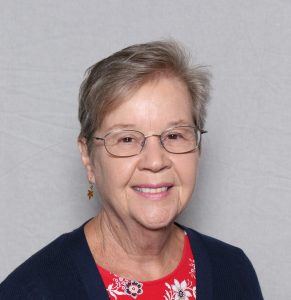Starting Your LNC Business
Starting your LNC business is exciting! The primary step in getting started is to look at your value as a nurse. Put aside all the thoughts about, “I don’t know the law,” or “I don’t know what the legal terms mean,” and ask yourself these 8 questions:
- What are your key strengths?
- What do you love to do?
- Are you equipped to do this type of role?
- Do you like digging into medical records?
- Are you fascinated by details?
- Do you enjoy writing reports?
- Do you enjoy researching and learning?
- Do you like to teach?
If you can answer yes to those questions, you have the qualities that help attorneys handle their cases. Those are the individuals who succeed in this field.
By the time I sold my independent LNC business in 2015, I had 200 nurses, doctors, and other healthcare providers under contract to review cases for my company. I taught them how to be expert witnesses and subcontractors, review cases, write reports, respond to clients, and testify effectively. In many situations, I gave them their first case and helped them launch their expert witness or LNC career.
The people who have those eight qualities listed above are the ones who are successful.
Starting Your LNC Business: Self-Assessment
First, look at your talents and strengths. Are you cut out for this work? Not everyone is. Moreover, not every nurse has writing skills. Nursing requires a high level of attention to detail. If you give 500 milligrams instead of 50 milligrams of a drug, you could end up injuring the patient.
Next, you need to ask yourself why you want this role. What fascinates you about working with the law and legal cases? So, what do you find so appealing?
You might have heard in your LNC program that this was a quick get-rich profession. You’re going to get business right away. Attorneys will be falling all over themselves to hire you.
If you heard this, you’ve been misled.
You need stamina to start a business and to be successful in a business. Success does not happen overnight. It takes determination, business knowledge, and support.
Some nurses are in the right place at the right time to make a connection or to get an introduction to an attorney, and their businesses take off. However, for most people, this is a slow process that requires determination, taking action, and not giving up.
Tell yourself, “I’m in this for the long haul. In fact, I could be so close to success and getting my first case.” But if you give up before you get there, you will be kicking yourself and saying, “I wasted time, I wasted money. Even though I went through an educational program, I didn’t get cases right away.”
You could be giving up when the first case is right around the corner.
Starting Your LNC Business: Getting Cases
In the first and second editions of The Paths to Legal Nurse Consulting, I shared stories of how some of my LNC colleagues got into the field.
Some nurses got their first cases from friends, family members, acquaintances, or random strangers. A few were approached out of the blue, and others applied for in-house jobs. Many persisted in the face of rejection. For some LNCs who worked in risk management or quality assurance, getting the first case was a byproduct of their role.
I’ve excerpted some of their stories here and organized them into a few categories. You’ll see there is no one uniform way of getting started.
Family, Friends, and Acquaintances
“It took me ten months to get my first case; I think my husband was starting to question the significant expenses I incurred. Deciding to become a legal nurse consultant, the biggest hurdle seems to be marketing and how to get clients. At every opportunity, I told people about my new business. My first client was an attorney whose son played sports with my son. I reviewed a personal injury case for him.” ~ Connie Paine
“My career began in 1998 when a couple in our church was arrested for starving their 15-year-old disabled daughter to death. I offered to analyze the girl’s medical and school records pro bono. My goal was to find the truth.
I used an excellent resource, Pat Iyer’s, Legal Nurse Consulting: Principles, Second Edition. I spent two years working with criminal defense attorneys, analyzing records, and researching. Then, I testified as a fact witness in two trials.” ~ Lisa Kuipers
Advertisements for Inhouse Jobs
‘While I was working in a large teaching hospital, a colleague left our ICU to work in the hospital’s “in-house” legal department. When I spoke to her about her job, it sounded intriguing, and I began looking for similar opportunities. Early in my nursing career, I was interested in process improvement and assisted with several quality assurance projects on my unit.
One day while reading the newspaper, I located a blind ad for a legal nurse consultant. Next, I sent my CV and was called for a telephone interview within a few days, followed by an in-person interview the following day.
The attorney, who specialized in the plaintiff’s personal injury, explained that part of the interview process was to take a case home that evening and have it completed by the next day. So, not knowing better, I complied with his request, despite having minimal legal knowledge and no training or experience as an LNC. The next day, I returned with my work product, and he hired me for the position.” ~ Alexa Schneider
Getting LNC Work From a Position
“My hospital background was primarily in the med-surg ICU of a regional trauma hospital. In 1985, I became the nurse manager of a forensic psychological practice. These patients were referred by treating physicians, nurse case managers, employers, and both plaintiff and defense attorneys.
I had never heard of a “legal nurse consultant,” but I knew that specialists needed information about the care rendered by other physicians. I developed a medical chronology as part of every psychological evaluation. In addition, this offered a “picture” of the patient as a person rather than a body part. The chronologies helped both the attorneys and the treating physicians since years of care would be summarized in just a few pages. I have now analyzed over 6,000 workers’ compensation cases.
I first heard the term “legal nurse consultant” in 2005 and was immediately drawn to the concept of forming an independent identity. Years of hospital work, attorney interface, writing record summaries, and dealing with medical experts laid the foundation for this career.” ~ Alice Adams
Random Calls from Strangers
“The opportunity to explore legal nurse consulting as a career came through a phone call from a legal assistant asking if I would be available to review a case for standards of care in a labor and delivery setting. A colleague had given her my contact information. Intrigued, I said yes. Then, several days later, I received my first case.” ~ Brenda Murphy
Getting your first LNC case can seem overwhelming. I can help walk you through the process of getting your first LNC case.
Learn more by joining us for the 10th LNC online conference moderated by Barbara Levin and myself, the two LNCs most experienced in putting on an online LNC conference. Get the details and your ticket here.

Pat Iyer is president of The Pat Iyer Group, which develops resources to assist LNCs in obtaining more clients, making more money, and achieving their business goals and dreams.
Pat’s related websites include the continuing education provided on LNCEU.com, the podcasts broadcast at podcast.legalnursebusiness.com, and writing tips supplied at patiyer.com.
Get all of Pat’s content in one place by downloading the mobile app, Expert Edu at www.legalnursebusiness.com/expertedu. Watch videos, listen to podcasts, read blogs, watch online courses and training, and more.


